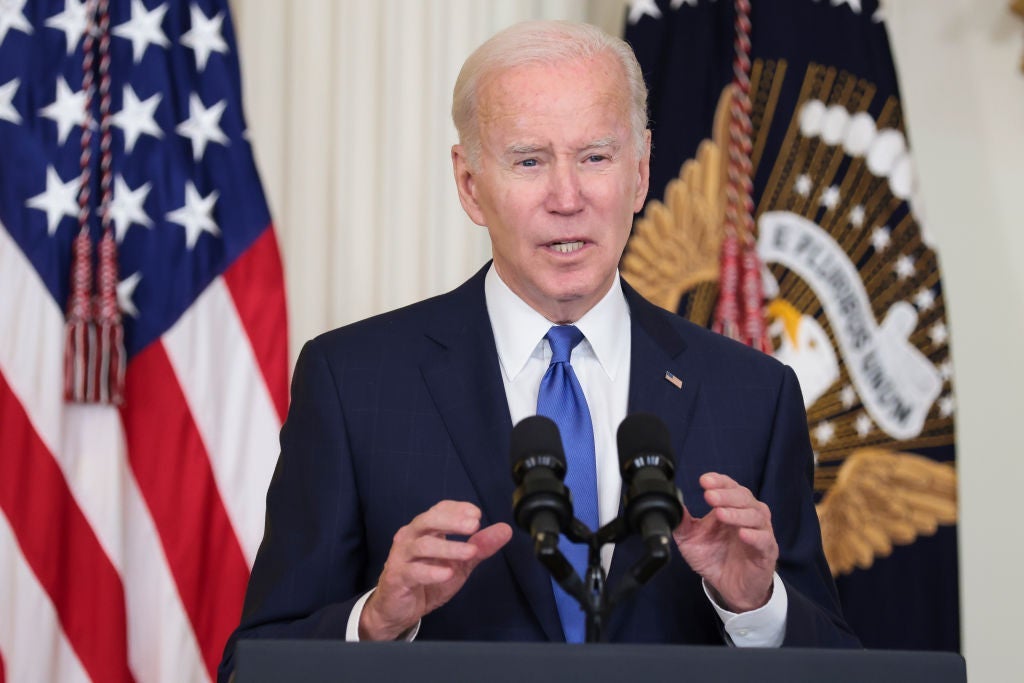
Since being elected in 2020, US President Joe Biden has highlighted strengthening and rebuilding the US’s manufacturing industry as a key focus. As part of this drive, Biden has enacted the Additive Manufacturing Forward Program, a partnership with several US manufacturers that aims to implement advanced technologies. He has also signed an executive order on the CHIPS Act in a bid to solve the semiconductor shortage within the US and implemented export controls to lessen China’s power in the semiconductor subsector.
Furthermore, Biden’s Inflation Reduction Act (IRA) is set to see billions of dollars of investment into the mission to make US manufacturing cleaner and more energy efficient. So, following a slightly more successful mid-term election for Democrats than expected, is Biden delivering on his promise to manufacturers?

Access deeper industry intelligence
Experience unmatched clarity with a single platform that combines unique data, AI, and human expertise.
IRA brings tax concern for manufacturers
Biden’s IRA became effective on 16 August. With an estimated $385bn valuation, it is intended to reduce inflation, but it also has key investment going to climate projects.
The bill also introduces a minimum corporate tax of 15% in the US, which its is estimated will generate between $42bn and $43bn in new business taxes per year in the country.
In response, the president and CEO of the National Association of Manufacturers (NAM), Jay Timmons, released a critical statement. “The NAM remains staunchly opposed to the Inflation Reduction Act,” he said. “It increases taxes on manufacturers in the US, undermining our competitiveness while we are facing harsh economic headwinds such as supply chain disruptions and the highest rate of inflation in decades.”
Timmons went on to highlight concern over the manufacturing sector’s ability to raise wages, hire workers and invest following the tax hike.

US Tariffs are shifting - will you react or anticipate?
Don’t let policy changes catch you off guard. Stay proactive with real-time data and expert analysis.
By GlobalDataHowever, Steven Blitz, global macro chief US economist at investment strategy research company TS Lombard, isn’t convinced of this threat. “Manufacturers never like to see their taxes go up,” he says. “The truth is that most of the small manufacturers are already paying above the minimum tax. [This minimum tax] will not really be impacting the smaller manufacturer. It will really be impacting the likes of Apple and the very large firms that have a lot of deductions and that shift a lot of their earnings overseas.”
Is pharmaceutical innovation under threat?
Another issue raised in the NAM statement in response to the IRA is the proposed direct negotiations over the cost of prescription drugs. “[The proposed negotiations] are a form of price setting and antithetical to the open marketplace of the Medicare Part D programme [a programme that helps cover costs of prescriptions],” said Timmons. “Pursuing price control policies could threaten future innovation and cures.”
According to the White House, the prescription drug provisions part of the bill is intended to lower prescription drug costs for people with Medicare and reduce federal drug spending. For pharmaceutical manufacturers, this will include paying rebates to Medicare if prices rise faster than inflation from 2023. It also aims to cap the monthly cost of insulin to $35.
Blitz believes there is some political posturing motivating the policy, but he is sceptical of the impact it will have on drug innovations. “In terms of impact, I think it can certainly sculpt and change [pharmaceutical manufacturers’] margins, but if a company comes up with a drug that is going to cure cancer, it is not going to not do it because of a price cap,” he says.
In a statement issued by the White House on 4 November, Biden clarified his objective to reduce healthcare costs for Americans. “The Republican plan is very different,” he said. “They want to increase prescription drug costs, health insurance costs and energy costs, while giving more tax breaks to big corporations and the very wealthy. Here is the deal: cutting corporate taxes and allowing big pharma to raise prices again is the Republican inflation plan and it is a disaster.”
The US strengthens its green credentials
Biden appeared at the UN Climate Summit in Egypt in mid-November able to boast of having dedicated billions of dollars of investment to clean energy, conservation efforts and carbon capture. For manufacturing, this presents an opportunity to cultivate stronger electric vehicle, renewable energy and battery production subsectors.
However, is the US in a position to populate these sectors with talent, and how competitive can the country be in the global race to be green?
Blitz explains that there is still a high percentage of the US population in need of jobs, despite the labour shortage, and the onus is on companies and government to work together to solve the issue.
“[The government can] subsidise manufacturers’ efforts when they say they can’t find anybody,” he says. “The government should say: ‘Well go hire and train them, and we will support you with some sort of a tax incentive to help you do that.’ The people are there but the skills are short. The people are there and they are not stupid.”
While the impact of heightened minimum taxes may be concerning to some manufacturers, the robust investments into green manufacturing put the US on a fairly strong footing. While tensions may continue between business and government, Biden is staying true to his promise to make the US more green while trying to balance a productive manufacturing sector with the cost of cultivating it.







